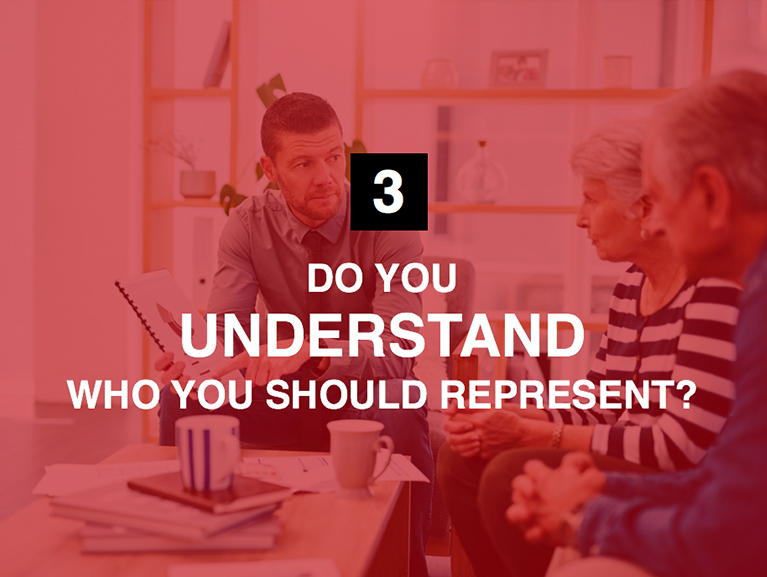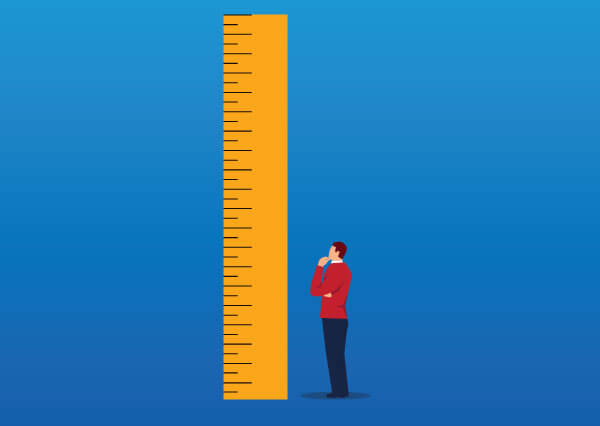Top 3 Ways Social Security Disability Law Firms Can Improve Their Intake Process

Perfecting your intake process for new Social Security Disability (SSD) clients is essential to a disability law firm’s success.
For impacting your firm’s revenue, it’s easily as important as how you handle hearings.
Firmidable recently hosted a webcast with law firm consultant James Brown of Attorney Consultant, Inc., to discuss commonly overlooked steps you should take to standardize and improve your SSD client intake process.
In the webcast, Jim shared a series of useful strategies for optimizing client intake, including:
- How to prepare, educate and build rapport with potential clients
- How to stay organized and efficient during interviews
- How to increase client intake without increasing your workload
Or read on for the top 3 ways you and your intake team can improve your Social Security Disability intake process.

RELATED
Avoid This Common Mistake When Measuring Your Law Firm Marketing >>
1. Treat Each Disability Claimant as an Individual
In order to create a standard SSDI or SSI intake process that allows you to address claimants’ needs efficiently and effectively, Brown explained that you must attend to every claimant as a human being with individual needs and concerns.
Treating all potential clients with sensitivity and being sympathetic to their stories during the SSD intake process will help you build rapport, which ultimately leads to a more successful intake and improves your firm’s chances of signing more clients.
How to Engage with Potential Social Security Clients
Courteously and efficiently guiding your potential client through the intake process while showing concern for their case is the best way to obtain the information you need.
Jim emphasizes that the SSD intake process is a people-oriented endeavor and that “good intakes win cases.”
A few key tips:
- Don’t Rush: Take time with your potential client to ensure they feel listened to and taken care of. Show your claimant that your firm cares about who they are as an individual and wants to win their case.
- Give Your Complete Attention: Ensure that your intake interview is not interrupted. Avoid seeming preoccupied.
- Compassion and Empathy: Be sympathetic. Make an effort to understand the claimants’ situation by understanding their perspective. Engage with their story and let them know the case is serious.
- Be a Partner: You no doubt know that to win a disability case, collaboration between the legal team and the client is essential. But make sure your potential clients understand, from the beginning, what is needed from them. “Every client knows that they’re my partner on their case,” says Jim.
Since COVID-19 and the arrival of the “new normal,” mental health has become a major concern across the country, making friendly and personal engagement even more important during intake interviews.
Additional measures, like implementing empathy training at your firm, will improve your employees’ ability to relate and show empathy during interviews.

2. Stay Organized during the Intake Process
Keeping your intakes organized will reduce your firm’s workload, saving you time and keeping your schedule open for more clients.
But in order to optimize your client selection methods, you must define what a good intake looks like. That’s why Jim recommends creating and honing a standard SSD intake form to streamline the process.
The Intake Interview
You can ensure a higher rate of approval for your clients by educating and preparing them during intake.
Providing potential clients with clear details on fees, expected timelines and required documentation such as medical records will improve their chances of creating successful applications.
To save time during the intake interview, Jim recommends keeping the conversation moving by “answering questions before they are asked.” Your potential clients are more likely to retain you if they observe that you are experienced, efficient and knowledgeable about how to handle their case.
In addition, Brown recommends recording intake interviews. Keeping recordings of all interviews will provide a safeguard against lost documents and computer crashes, as well as a chance to do post-mortem assessments on successful and unsuccessful claims.
Recording also helps you evaluate the performance of the individual doing the intake.
Of course, review your state laws regarding recording conversations before implementing this step.
Post-Interview
At the end of each intake, while still talking with your prospective client, do a “head-to-toe” assessment of your potential new client’s health.
This may provide additional insight into potentially debilitating health issues that the claimant has overlooked.
Once a client retains you, send a thank you letter as a final, personal touch for your intake process.

3. Set Standards for Whom Your Law Firm Will Represent
A successful Social Security disability law firm needs to handle a volume of intakes, while not letting quality of the screening process decline. Developing standards to determine who you will represent will allow you to effectively allocate your intake team’s time and resources.
Written standards will also help eliminate the frustrations and tension that can occur when the file reaches the attorney’s desk, and the attorney disagrees with the intake professional’s decision to accept this case.
Create a Scoring System
Jim recommends scoring each potential client based on a set of categories that includes medical history, work history, income, education, and your firm’s own instinct on the viability of the case. This way, your intake department can quickly sort through good and bad cases based on the score.
Jim warns against cherry-picking only great cases for a few reasons:
- You risk overlooking cases that may get paid: frequent filers, etc.
- Long processing times mean that complications can arise; a difficult case may improve.
- ALJ’s can become aware that you aren’t working too hard and reflect this in their decisions.
- Ethical Considerations: Law firms exist to help those who need it. Cherry-picking cases deprives some groups (younger individuals, felons, drug users, etc.) of their equal right to representation.
Taking Social Security Disability Initial Application Cases
There are many law firms that decline to represent claimants until they have been denied by the Social Security Administration. However, Jim advises that your firm should accept initial SSD claims for several reasons.
Connecting with a claimant before they apply gives you the opportunity to prepare an application from the ground up. About 70% of applicants are denied due to lack of preparation or other problems, and early assistance will significantly improve their chances of approval.
Helping claimants apply for benefits is not just a valuable service, it can benefit the firm’s revenue. Some of Firmidable’s most successful disability law firm clients say that 70-85% of their new cases are initial applications.
Initial applications can be handled by staff, creating revenue for the firm that does not require attorney time. And since so many applicants are denied initially by the SSA, those that are denied are already your client, ready for your help with the appeal.
Obtaining help with initial applications is very popular with the public. If you send the applicant away, you can easily send them into the open arms of another firm, and then that firm will handle the appeal should the claimant be denied.
As one disability attorney recently told another who was reluctant to set up an intake team process to handle applications, “If you don’t take someone who calls with an initial app, we will.”
Firmidable’s Webcast Conclusion: A Smarter Intake Process Builds Your Firm
In summary, Jim Brown says that your new clients should “be a friend and a partner” during the SSD intake process.
As long as you remain organized and efficient on your end, taking the time to listen and engage with potential clients is the most effective way to conduct intake interviews, simultaneously accomplishing two goals: educating and preparing your potential client while gaining the relevant information you’ll need for a successful case.
Making the most of your intake interviews will eliminate unnecessary post-interview work, giving you more time and resources to expand your client base.
For more detailed information on these intake strategies, click to view our recorded webcast with legal consultant Jim Brown.
Firmidable has been a national expert in legal marketing for almost 30 years. It brings law firms customized, data-driven marketing strategies and services, including online and traditional media for a wide range of legal practices. From Maine to Hawaii, it has transformed the lives of attorneys—and their clients.

